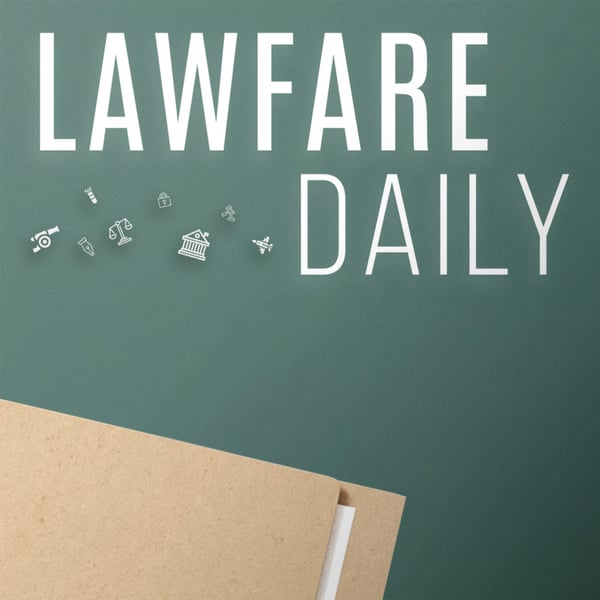Lawfare Archive: Lindsay Chervinsky on ‘Making the Presidency’
The Lawfare Podcast
The Lawfare Institute
4.7 • 6.2K Ratings
🗓️ 11 November 2025
⏱️ 69 minutes
🧾️ Download transcript
Summary
From September 23, 2024: Lindsay Chervinsky is the Executive Director of the George Washington Library at Mount Vernon. She is also the author of a much celebrated new book on the John Adams presidency that is focused primarily on the national security decision-making of the second president and how it set norms for the conduct of the presidency and its powers with which we still live today. She sat down with Lawfare Editor-in-Chief Benjamin Wittes to talk about how Adams defended presidential power while it was under assault by both his Jeffersonian foes and the radicals of his own Federalist party.
To receive ad-free podcasts, become a Lawfare Material Supporter at www.patreon.com/lawfare. You can also support Lawfare by making a one-time donation at https://givebutter.com/lawfare-institute.
Support this show http://supporter.acast.com/lawfare.
Hosted on Acast. See acast.com/privacy for more information.
Transcript
Click on a timestamp to play from that location
| 0:00.0 | I'm Isabella Royo, intern at Lawfare, with an episode from the Lawfare |
| 0:13.0 | for November 11, 2025. |
| 0:16.0 | On March 15th, President Trump issued an executive order invoking the Alien Enemies Act against Venezuelan nationals who belonged to the Transderauga Gang. |
| 0:25.0 | The Alien Enemies Act is the only remaining law of the Alien and Sedition Acts, |
| 0:29.1 | four national security statutes from the administration of President John Adams that garnered strong support from federalists and strong opposition from Democratic Republicans. |
| 0:37.9 | For today's archive, I chose an episode from September 23, 2004, in which Ben Wittes and |
| 0:43.2 | Lindsay Trevinsky discussed the forging and reformulating of presidential power and particularly |
| 0:48.4 | national security powers during the Adams administration. The two discussed President Adams' |
| 0:52.8 | defense of presidential power against |
| 0:54.8 | his Jeffersonian foes, the national security decision-making norms entrenched during Adams' presidency, |
| 1:01.0 | divisions over presidential power within Adams' Federalist Party, and more. |
| 1:24.6 | I'm Benjamin Wittes, and this is the Lawfare podcast with Lindsay Chervinsky, author of Making the Presidency, John Adams and the Precedents that Forged the Republic. |
| 1:32.9 | The presidency had been dominant in the first eight years, but there was a question of whether that dominance was personality-based or institution-based. |
| 1:37.2 | And so there was a push by members of Congress to seize some of that authority when someone like Washington was no longer in that position. |
| 1:48.9 | Today we're talking the second presidency, |
| 1:52.8 | how the norms of executive authority and power |
| 1:56.9 | that we have understood had to be fought for |
| 2:00.7 | and established after George Washington left office. |
| 2:05.4 | I want to start with one of the reasons that I think this book is getting so much attention and interest right now, |
| 2:13.9 | which is that John Adams' administration was bracketed by the first and second |
| 2:21.9 | peaceful transfers of power, one of them under extraordinarily fraught circumstances. |
| 2:31.2 | So among the many issues in this book that are highly salient to lawfare readers and listeners, |
... |
Transcript will be available on the free plan in 14 days. Upgrade to see the full transcript now.
Disclaimer: The podcast and artwork embedded on this page are from The Lawfare Institute, and are the property of its owner and not affiliated with or endorsed by Tapesearch.
Generated transcripts are the property of The Lawfare Institute and are distributed freely under the Fair Use doctrine. Transcripts generated by Tapesearch are not guaranteed to be accurate.
Copyright © Tapesearch 2025.

